As the weather starts to chill down, it’s time to think about prepping your heating system for winter. The best time to do this is in the early fall to ensure adequate time to respond to any problems before your system is needed each day for warmth. Fortunately, we’re going to share our homeowner’s ultimate guide to wintertime heating maintenance below.
Book Professional Service
The best way to start your fall maintenance is by booking a professional maintenance service. An HVAC technician can perform tasks like lubricating moving parts, testing electrical connections, and so forth to ensure your system operates at peak efficiency. They’ll even let you know when there are any wear issues so you can address them to decrease your risk of experiencing a breakdown. Furthermore, professional maintenance is typically a requirement of your system’s warranty contract.
Chimney Cleaning
If you use a fuel-burning heating system that relies on burning natural gas, heating oil, or propane, then it’s highly advisable to invest in a chimney cleaning service. This service will ensure the removal of debris in your chimney, like creosote and soot, that could create a potential fire hazard. Additionally, a chimney inspection will reveal any potential faults that your chimney may have so you can fix them before you start using your chimney.
Order Fuel
If your furnace creates heat by burning heating oil or natural gas, then you could have a storage tank on site to hold your fuel supply. Now is the perfect time to order your fuel delivery. You want to ensure there’s adequate fuel for your HVAC technician to perform testing on your system. Consider signing up for automatic delivery service so your furnace never runs out of fuel during the winter season.
Seal Up Air Leaks
Air leaks tend to develop on the exterior walls as a natural result of houses settling into the ground. When these leaks open up, they allow cold outdoor air to seep into your home. To prevent this problem, it’s helpful to assess all your exterior walls for air leaks. Pay particular attention to door and window frames as they’re the most common place for leaks to develop. Using weatherstripping or caulking will typically be all you need to seal off those unwanted leaks.
Program Thermostat
Take the time to program your thermostat at the beginning of the heating season. Be sure to be energy conscious by lowering the temperature setting at times you know you won’t be home. The less energy you use throughout the winter, the more money you’ll save on your utility bills.
Test System
Once your system has fuel, it’s time to give it a test run. When your system first kicks on, you’ll likely get a whiff of a burning smell. This is normal and should go away in a few moments. If you notice any other odd smells or weird noises, contact an HVAC technician for further assessment. When testing running your heating system, check each supply vent to ensure heat is coming out of it. All air vents should have at least three feet of open space around them to prevent airflow restriction.
Set Ceiling Fans Appropriately
Ceiling fans can be a great addition to help circulate hot air throughout your home and prevent overrunning your air conditioning system. However, they need to be set to operate in the right direction to be effective. During the winter months, ceiling fans should be set to spin in a clockwise direction. This avoids air being forced down onto you like in the summertime. Rather, it forces warm air at the top of the room outward.
Consider Duct Sealing and Cleaning
If you have a forced-air heating system, then your ductwork plays a big role in the overall efficiency of your system. Anytime there is built-up debris inside your ducting, it can restrict airflow and make your heating system run longer to heat your home adequately.
Additionally, any leaks that develop in your ductwork due to the natural process of expansion and contraction can allow your valuable warm air to escape into your floor and wall cavities. This causes your heating system to overwork to produce more hot air for your home. Duct cleaning and sealing services every few years are great ways to prevent these issues from happening with your heating system.
Replace HVAC Filter
Your heating system has a filter responsible for removing airborne contaminants from your air. Unfortunately, if the filter is dirty, all it does is restrict system airflow, leading to poor indoor air quality. To prevent this issue, we advise you to install a new HVAC filter in your system. Keep a spare one on hand so you can easily replace a dirty filter without waiting.
Check Safety Equipment
Any internal heating system poses some risk to a household’s residents. Having smoke detectors, carbon monoxide detectors, and a working fire extinguisher are the keys to alerting you of problems and allowing you to address them quickly. Be sure to put fresh batteries in all your detectors and hit their test buttons to ensure they’re working properly. Additionally, make sure your fire extinguisher is not expired and that it’s rated to handle Type C electrical fires. Even a Type ABC fire extinguisher is effective for any HVAC system problems.
Examine Your Insulation and Attic Vents
Having adequate insulation in your home is necessary to keep the heat your heating system produces inside your home. Now is the perfect time to head up to your attic and check the state of your insulation. Ideally, it should sit at or above the top of the floor joists. If you have loose insulation below this level, consider adding more. Take the time to examine your attic vents to ensure they’re open. This allows for cool airflow through your attic so that any excess heat doesn’t heat the underside of your roofing materials and cause premature deterioration.
Cover Your AC Unit
If you have a central air conditioning system that you rely on in the summertime, then you have a large outdoor condenser unit. This unit needs to be covered during the winter to prevent internal damage to your system. When doing furnace maintenance, it’s the perfect time to cover the outdoor AC unit. Using an AC unit cover is ideal. However, any solid piece of plywood works great to protect the top of the unit. Just be sure to use a mesh-like fabric on the sides so any moisture trapped inside your condenser unit can easily come out. Otherwise, the inside of your unit may rust.
Reliable Heating Maintenance Service
DeWolfe Plumbing, Heating & Cooling offers reliable heating maintenance service for the Boylston, MA area. We can even assist with all your heating, cooling, plumbing, sump pump, indoor air quality, duct service, dryer vent cleaning, excavation, commercial AC, and water main needs. Simply call our office today to book your next service appointment.


